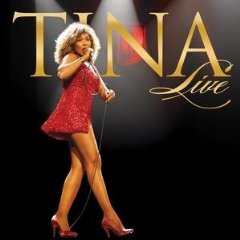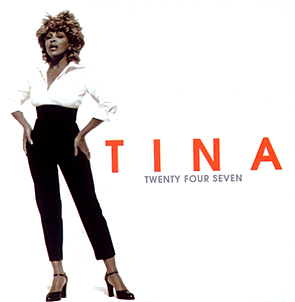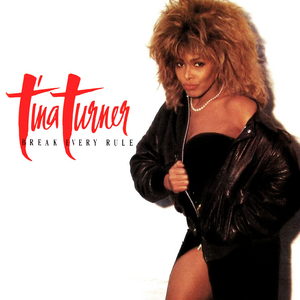best Tina Turner songs (A-Z) ↓↓↓

Scroll down and discover the best Tina Turner songs (A-Z)!
We've meticulously organized our extensive library for your convenience. Explore best Tina Turner songs sorted by popularity to easily find the tracks that resonate most with listeners, or browse through our alphabetical (A-Z) listing to discover hidden gems and classic favorites alike. Whether you’re a long-time fan or new to Tina Turner music, there’s something for everyone to enjoy.
♫Tina Turner
Best Tina Turner songs
- 1 Simply The Best
- 2 Proud Mary
- 3 River Deep, Mountain High
- 4 Private Dancer
- 5 Let’s Dance
- 6 A Fool In Love
- 7 Nutbush City Limits
- 8 Do What You Do
- 9 Addicted To Love
- 10 Crazy In The Night
- 11 Help Me Make It Through The Night
- 12 A Change Is Gonna Come
- 13 1984
- 14 Disco Inferno
- 15 Tonight
- 16 The Best
- 17 Grapevine
- 18 Tonight I’ll Be Staying Here With You
- 19 Baby — Get It On (duet With Ike Turner)
- 20 Missing You
- 21 I Can’t Stand The Rain
- 22 Better Be Good To Me
- 23 Steamy Windows
- 24 Goldeneye
- 25 Dancing In My Dreams
- 26 All Kinds Of People
- 27 Be Tender With Me Baby
- 28 Whats Love Got To Do With It
- 29 It Takes Two
- 30 Whatever You Need
A-Z songs of Tina Turner (139)
- ♫ 1984
- ♫ 634—5789
- ♫ A Change Is Gonna Come
- ♫ A Fool In Love
- ♫ Absolutely Nothing’s Changed
- ♫ Acid Queen
- ♫ Addicted To Love
- ♫ Afterglow
- ♫ All Kinds Of People
- ♫ All The Woman
- ♫ Ask Me How I Feel
- ♫ Baby — Get It On (duet With Ike Turner)
- ♫ Back Where You Started
- ♫ Be Tender With Me Baby
- ♫ Bet’cha Can’t Kiss Me
- ♫ Better Be Good To Me
- ♫ Bold And Reckless
- ♫ Break Every Rule
- ♫ Break Through The Barrier
- ♫ Complicated Disaster
- ♫ Confidential
- ♫ Cose Della Vita
- ♫ Crazy In The Night
- ♫ Dancing In My Dreams
- ♫ Darlin’ You Know I Love You
- ♫ Disco Inferno
- ♫ Do Something
- ♫ Do What You Do
- ♫ Don’t Leave Me This Way
- ♫ Don’t Rush The Good Things
- ♫ Don’t Talk Now
- ♫ Don’t Turn Around
- ♫ Dust My Broom
- ♫ Easy As Life
- ♫ Falling
- ♫ Falling Like Rain
- ♫ Finger Poppin’
- ♫ Fool In Love
- ♫ Foreign Affair
- ♫ Funny How Time Slips Away
- ♫ Games
- ♫ Girls
- ♫ Go Ahead
- ♫ Goldeneye
- ♫ Grapevine
- ♫ Great Spirits
- ♫ Havin’ A Party
- ♫ He Lives In You
- ♫ Help
- ♫ Help Me Make It Through The Night
- ♫ I Ain’t Missing You
- ♫ I Better Get Steppin’
- ♫ I Can See For Miles
- ♫ I Can’t Stand The Rain
- ♫ I Don’t Wanna Fight
- ♫ I Don’t Wanna Lose You
- ♫ I Idolize You
- ♫ I Might Have Been Queen
- ♫ I Want You Near Me
- ♫ I Will Be There
- ♫ I’ll Be Thunder
- ♫ I’ve Been Loving You Too Long To Stop Now
- ♫ If You Love Me (let Me Know)
- ♫ In The Midnight Hour
- ♫ In Your Wildest Dreams
- ♫ It Takes Two
- ♫ It’s Gonna Work Out Fine
- ♫ It’s Only Love
- ♫ Johnny And Mary
- ♫ Keep Your Hands Of My Baby
- ♫ Land Of 1000 Dances
- ♫ Legs
- ♫ Let’s Dance
- ♫ Let’s Pretend We’re Married
- ♫ Let’s Spend The Night Together
- ♫ Let’s Stay Together
- ♫ Look Me In The Heart
- ♫ Love Is A Beautiful Thing
- ♫ Love Thing
- ♫ Missing You
- ♫ Not Enough Romance
- ♫ Nutbush City Limits
- ♫ On Silent Wings
- ♫ One Of The Living
- ♫ Open Arms
- ♫ Overnight Sensation
- ♫ Paradise Is Here
- ♫ Private Dancer
- ♫ Proud Mary
- ♫ River Deep, Mountain High
- ♫ Rock Me Baby
- ♫ Rock’n’roll Widow
- ♫ Shake A Tail Feather
- ♫ Show Some Respect
- ♫ Simply The Best
- ♫ So Fine
- ♫ Something Beautiful Remains
- ♫ Something Special
- ♫ Sometimes When We Touch
- ♫ Stay A While
- ♫ Steamy Windows
- ♫ Steel Claw
- ♫ Stronger Than The Wind
- ♫ Take Me To The River
- ♫ Talk To My Heart
- ♫ Tearing Us Apart
- ♫ The Best
- ♫ The Difference Between Us
- ♫ The Night Time Is The Right Time
- ♫ Thief Of Hearts
- ♫ Till The Right Man Comes Along
- ♫ Tina’s Wish
- ♫ Tonight
- ♫ Tonight I’ll Be Staying Here With You
- ♫ Total Control
- ♫ Twenty Four Seven
- ♫ Two People
- ♫ Typical Male
- ♫ Under My Thumb
- ♫ Undercover Agent For The Blues
- ♫ Unfinished Sympathy
- ♫ Way Of The World
- ♫ We Don’t Need Another Hero
- ♫ We Don’t Need Another Hero (thunderdome)
- ♫ What You Get Is What You See
- ♫ What You See Is What You Get
- ♫ What’s Love Got To Do With It
- ♫ Whatever You Need
- ♫ Whatever You Want
- ♫ Whats Love Got To Do With It
- ♫ When I Was Young
- ♫ When The Heartache Is Over
- ♫ Whole Lotta Love
- ♫ Why Must We Wait Until Tonight
- ♫ Why Must We Wait Until Tonight?
- ♫ Without You
- ♫ Woman In A Man’s World
- ♫ You Can’t Stop Me Loving You
- ♫ You Know Who
Albums of Tina Turner
-
 Tina Live (2009)
Tina Live (2009)
-
 Twenty Four Seven (1999)
Twenty Four Seven (1999)
-
 Wildest Dreams (1996)
Wildest Dreams (1996)
-
 What’s Love Got to Do with It (1993)
What’s Love Got to Do with It (1993)
-
 Foreign Affair (1989)
Foreign Affair (1989)
-
 Tina Live in Europe (1988)
Tina Live in Europe (1988)
-
 Break Every Rule (1986)
Break Every Rule (1986)
-
 Mad Max Beyond Thunderdome (1985)
Mad Max Beyond Thunderdome (1985)
-
 Private Dancer (1984)
Private Dancer (1984)
-
 Love Explosion (1979)
Love Explosion (1979)
-
 Rough (1978)
Rough (1978)
-
 Acid Queen (1975)
Acid Queen (1975)
-
 Tina Turns the Country On! (1974)
Tina Turns the Country On! (1974)